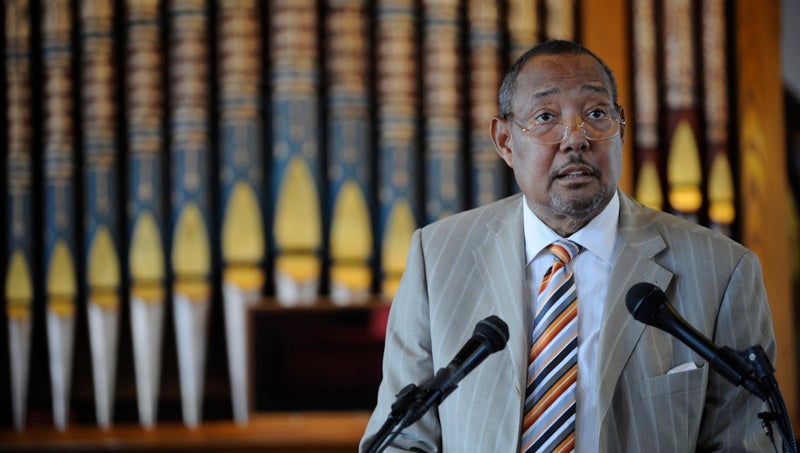Service sorority to host Sickle Cell Walk on Saturday
Published 7:15 pm Thursday, May 16, 2019

- IN MEMORY: This year’s Sickle Cell Walk is hosted in honor of the Rev. David L. Moore, a Washington community leader who died of Sickle Cell complications earlier this year. (Vail Stewart Rumley/Daily News)
It’s a disease that affects more than 100,000 people nationwide — mostly African-Americans — and one local group is doing its part to find a cure for sickle cell anemia.
This Saturday, starting at 12:30 p.m., the Washington-Plymouth Alumna Chapter of the Delta Sigma Theta Sorority will host its annual Sickle Cell Walk in downtown Washington. This year’s event is held in honor of the Rev. David Moore, who died earlier this year from complications related to the disease.
“We’ve been doing this for several years and usually our home base is Metropolitan Church,” said Delta Sigma Theta member and event organizer Joyce O’Neal. “We’ll start our walk there at Metropolitan on Saturday and walk down to the waterfront and back. A number of the sorority contacts their family and friends, and all the money that we raise is sent to the National Sickle Cell Foundation Fund.”
Sickle cell anemia is an inherited blood disorder that causes red blood cells to become misshapen in a person’s circulatory system, sometimes leaving a shortage of healthy red blood cells or blocking circulation. This blocked circulation can cause pain and fatigue and leave a person vulnerable to infection.
This year, funds raised during the walk will also benefit St. Jude Children’s Research Hospital, which has one of the larges pediatric sickle cell programs in the country. In addition to treating children with the disease, St. Jude has been at the forefront of sickle cell research since the hospital opened in 1962.
“This year is really special because we lost Rev. Moore to sickle cell,” Moore said. “People dying from it is not as prevalent as it used to be because they are aggressively looking for ways to find a cure and prolong the lives of people who have the disease. Rev. Moore was diagnosed when he was 12 years old, and he was 63 when he died. His doctor predicted when he was first diagnosed that he wouldn’t live to see 20 years old. Typically, in years past, people did not live to see their 40th birthday.”
With advances in sickle cell research, however, new developments have allowed those living with the disease to manage their symptoms, and in some cases be cured through blood transfusions.
“They’re just making terrific strides,” O’Neal said. “That’s why having a fundraiser for the Sickle Cell Foundation is so important, because the more money we raise, the more research they can do. We’re believing they’re going to find a cure for everyone.”
All are welcome to join in the Sickle Cell Walk on Saturday and walk for a cure.





